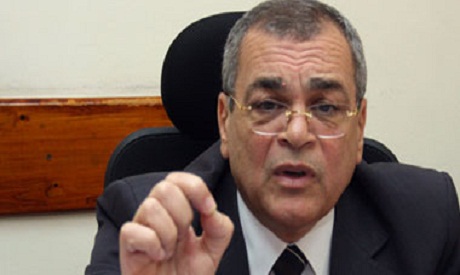
Oil expert, former deputy chairman of the Egyptian General Petroleum Corporation Medhat Yosef
Former deputy chairman of the Egyptian General Petroleum Corporation Medhat Youssef said that global oil prices will continue to see a fluctuation as long as lockdowns and social distancing measures, which have been adopted globally to contain the COVID-19 outbreak, are not eased.
Speaking to Ahram Online, Youssef explained that a return to normal life is essential to bring oil prices back to their normal levels, as lockdowns and other similar measures have caused a drop in demand globally and domestically, causing a state of glut in the global oil market. So, a number of European and Arab countries have already begun to ease lockdowns and other related measures gradually.
“Returning to normal life is a must for the economy, business, and for citizens. The COVID-19 outbreak has driven the oil market to its worst state,” according to Youssef.
He also said that global oil enterprises and investors have been forced to add aircraft oil to diesel because flight suspensions have caused a drop in demand for aircraft fuel.
Moreover, global petroleum refineries have reduced their capacity to only 17 percent.
Regarding the deal by OPEC and non-OPEC countries to reduce oil production as of 1 May, Youssef said that this should be put into effect as soon as possible.
Youssef also stressed that Egypt’s government should revise measures related to decreasing the labour force in administrative bodies, shutting shopping malls, and suspending aviation, and he praised the steps the government has taken regarding easing lockdown measures during Ramadan, saying this will liven up the market.
“The government has taken important and necessary preventive measures to contain the COVID-19 impacts and to protect the national economy against the likely harsh impacts of the virus outbreak. But, the economy and business are suffering from these procedures and it has to ease such measures gradually, which is in the interest of all parties,” according to Yosef.
On 11 April, oil prices witnessed a drop on the back of fear that an OPEC and Russia deal reducing production by 10 percent would not make up for the drop in demand due to the COVID-19 outbreak.
On 12 April, OPEC+, OPEC and its partners led by Russia reached a deal to reduce their combined oil production by 9.7 million barrels per day in May and June to counter the crash in global oil demand amid COVID-19 crisis. Analysts, however, think that these cuts would be “too little, too late” to support the market, considering that the current demand loss stands at around 30 million bpd—three times the cuts promised by OPEC.
On Thursday, OPEC’s fourth-largest producer, Kuwait, announced that it has embarked on reducing crude oil supply to international markets in response to the deteriorated oil market conditions due to the COVID-19 outbreak.
Russia and Saudi Arabia released a joint statement in April saying that they will continue to monitor the oil market and are prepared to take further measures jointly with OPEC+ and other producers if these are deemed necessary.
Short link: